"Instead of culture, there are lice." Anti-Russian postcards from the First World War
The war is waged not only on the battlefield. The most important element of large—scale armed conflicts that require the ideological mobilization of the entire nation is propaganda. We believe many of you have seen Soviet illustrations that disgust German soldiers and Nazism in general. Similar pictures were printed on the other side of the barricades — in relation to the Soviet government. And during the First World War, German agitation developed, accordingly, the right attitude towards Emperor Nicholas II and the people he ruled.
(13 photos in total)
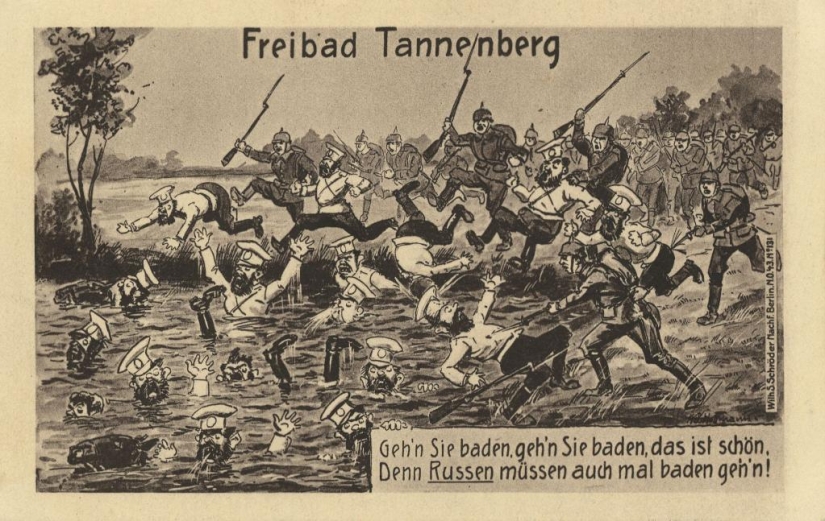 Source: LiveJournal/humus
Source: LiveJournal/humus
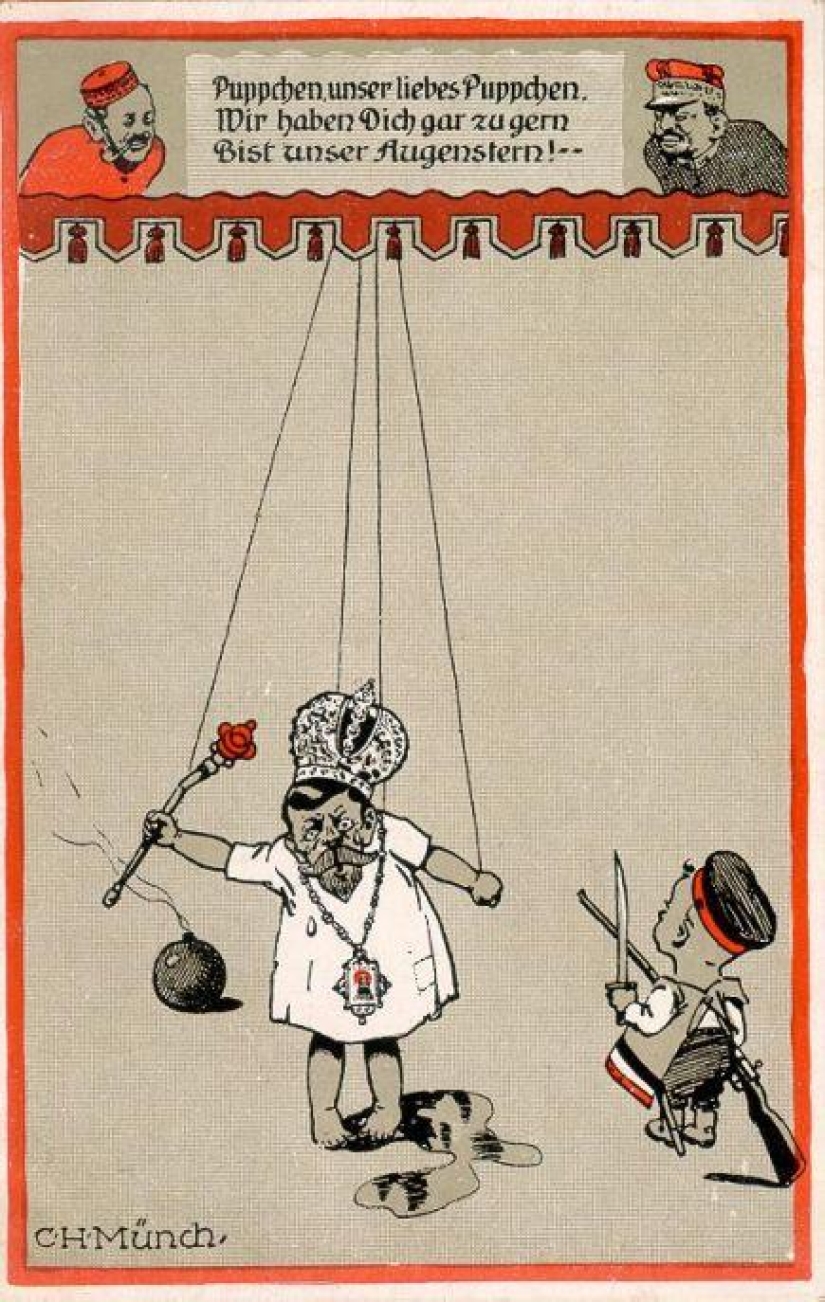
"Doll, our dear doll."
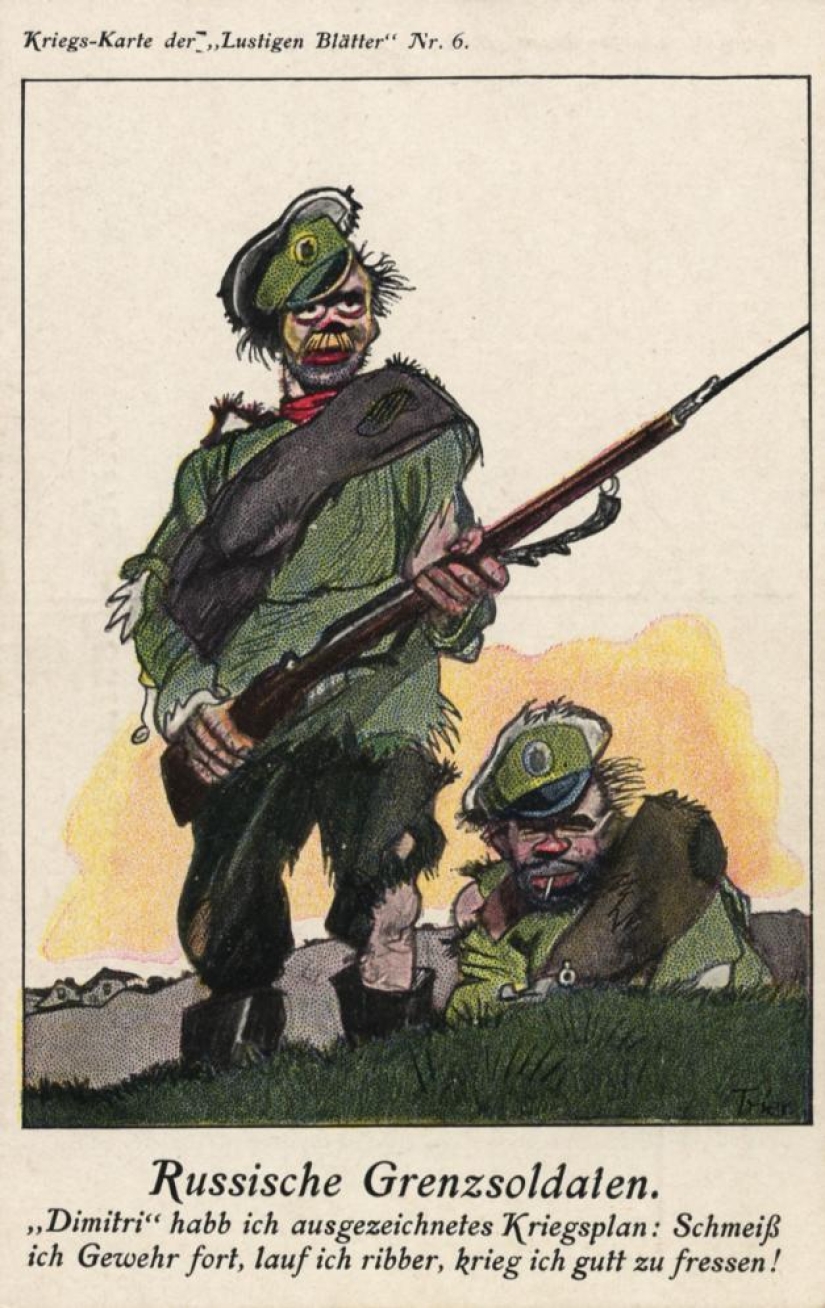
"Russian border guards. Dmitry, I have a great plan: we drop our weapons and run!"
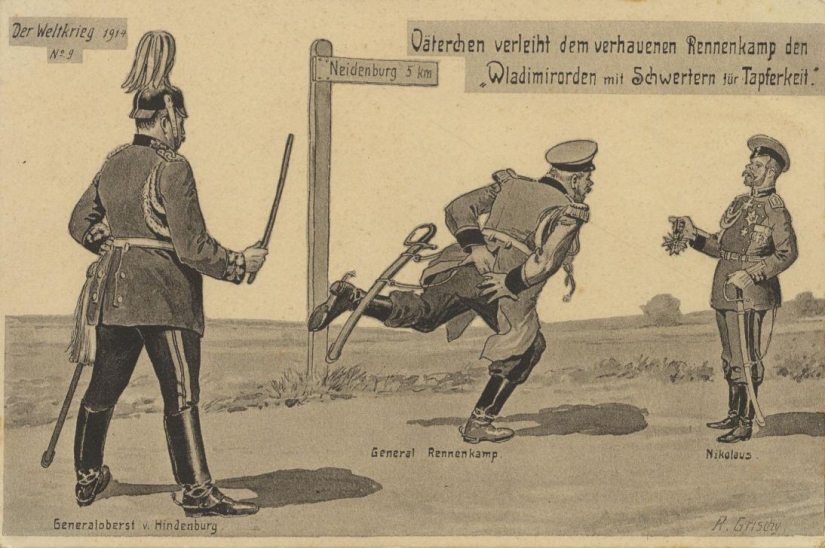
"Nicholas II awards the Order of St. Vladimir for courage in fleeing from the battlefield."
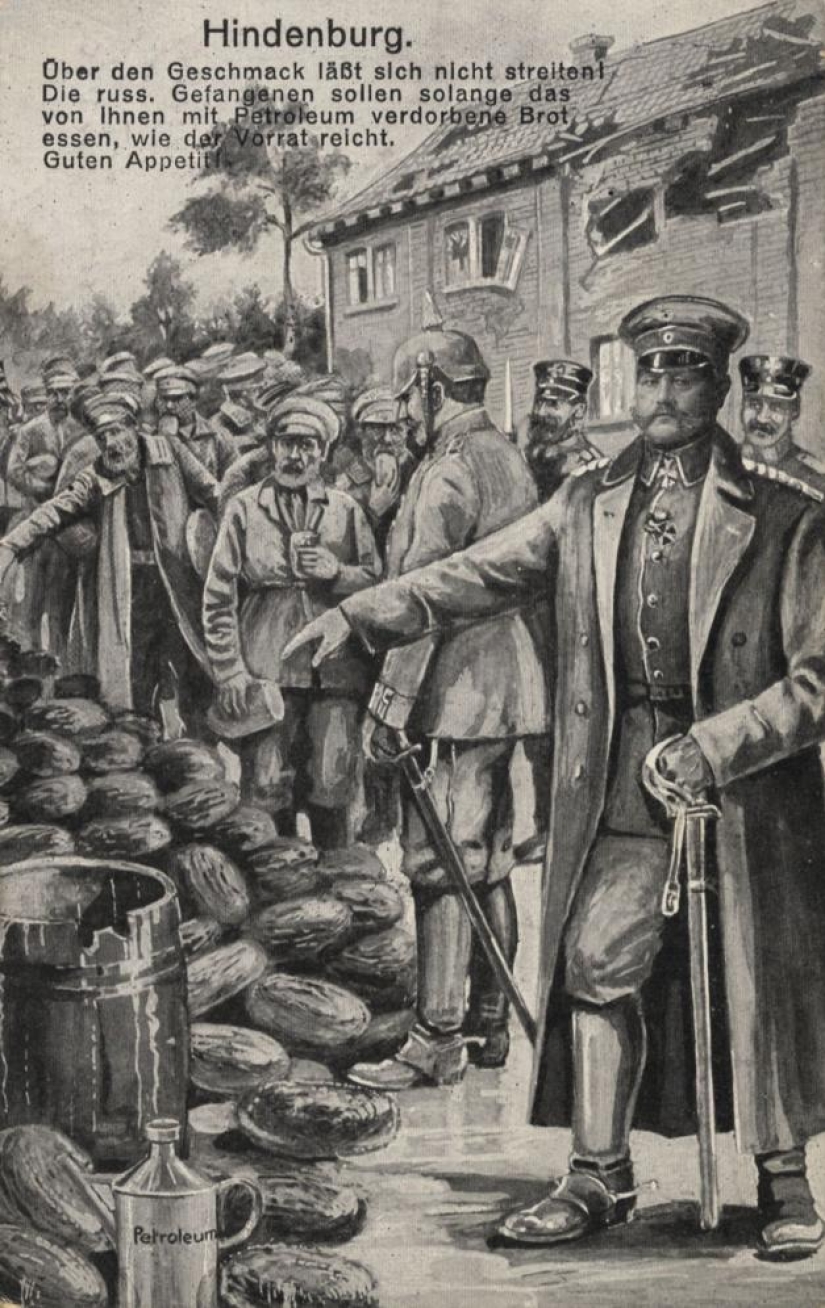
"Hindenburg. Tastes are not disputed. Russian prisoners of war found bread with kerosene. And they ate it. Bon appetit!"
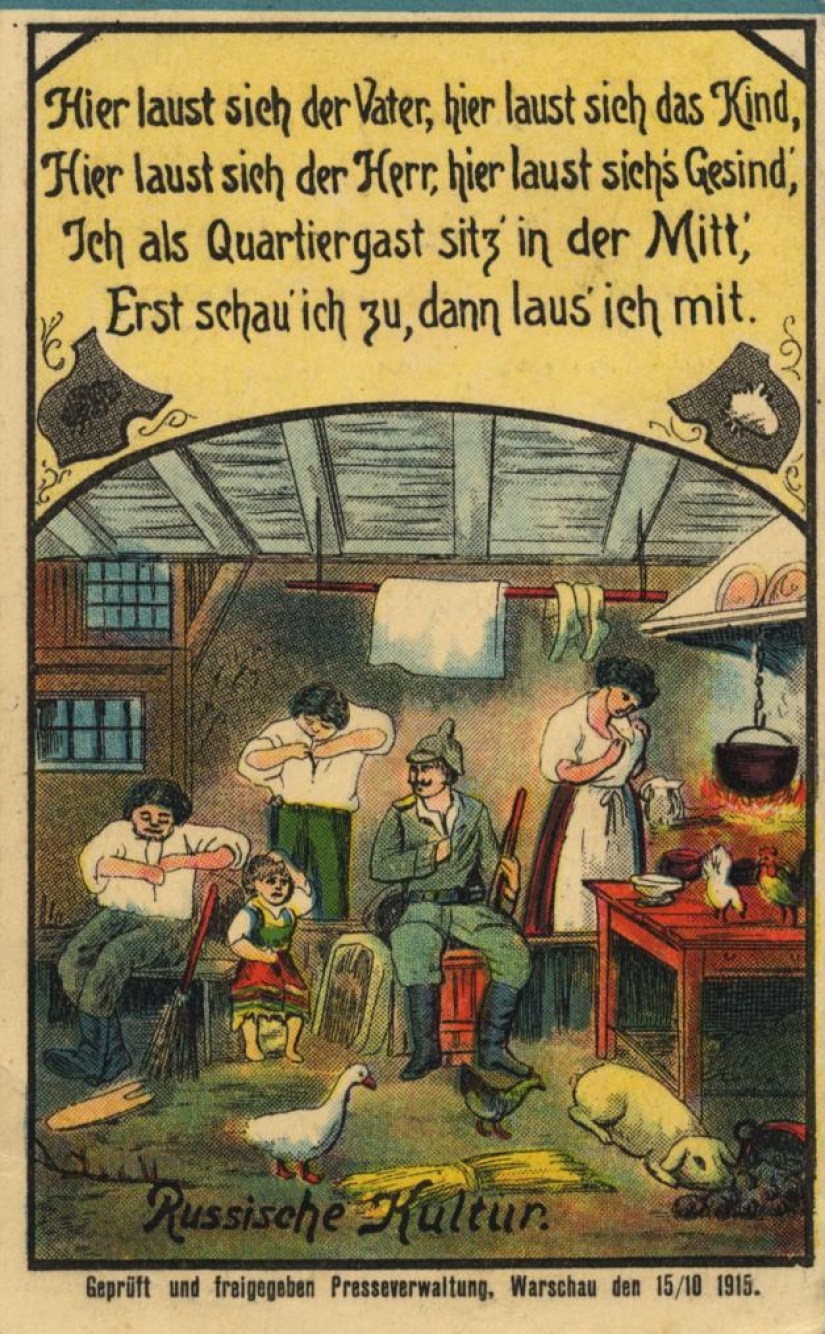
"Russian culture".
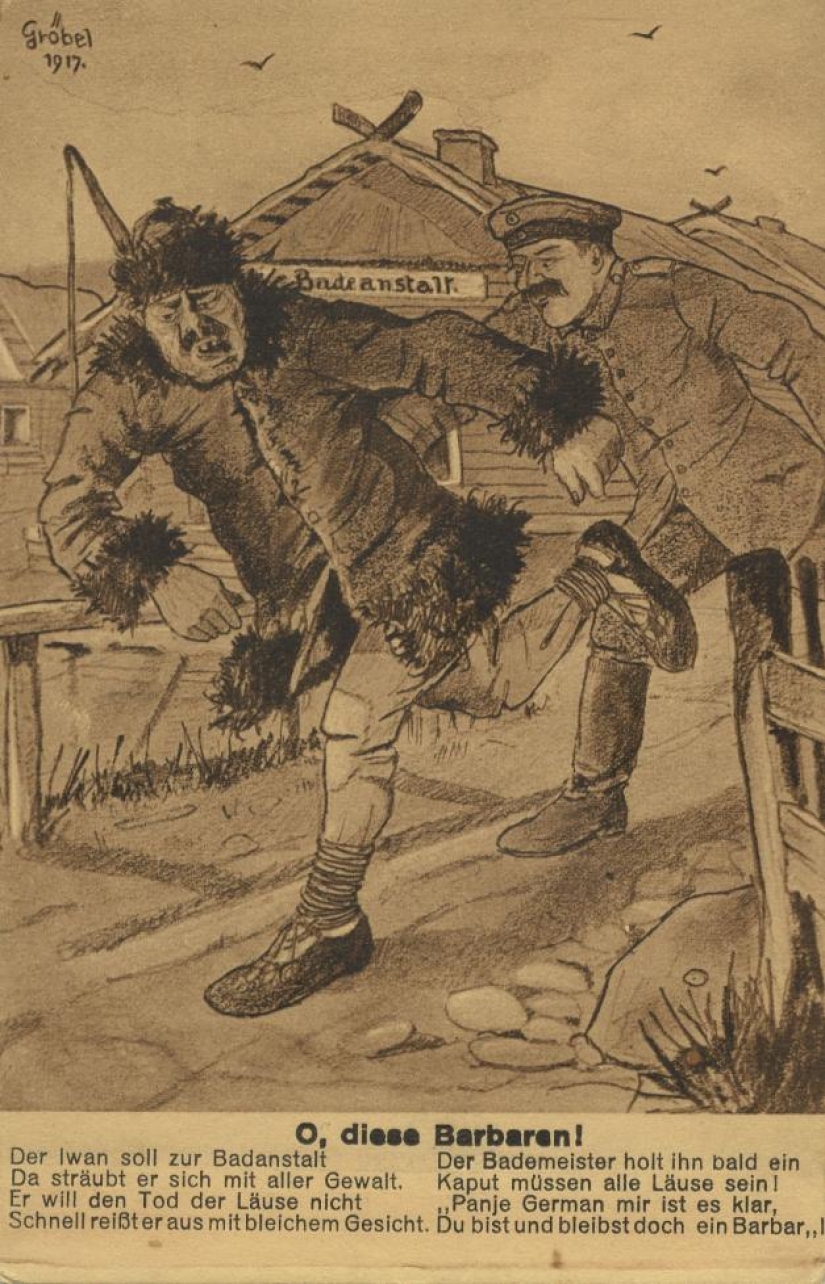
Oh, these barbarians! Ivan runs away from the bathhouse as from a fire.
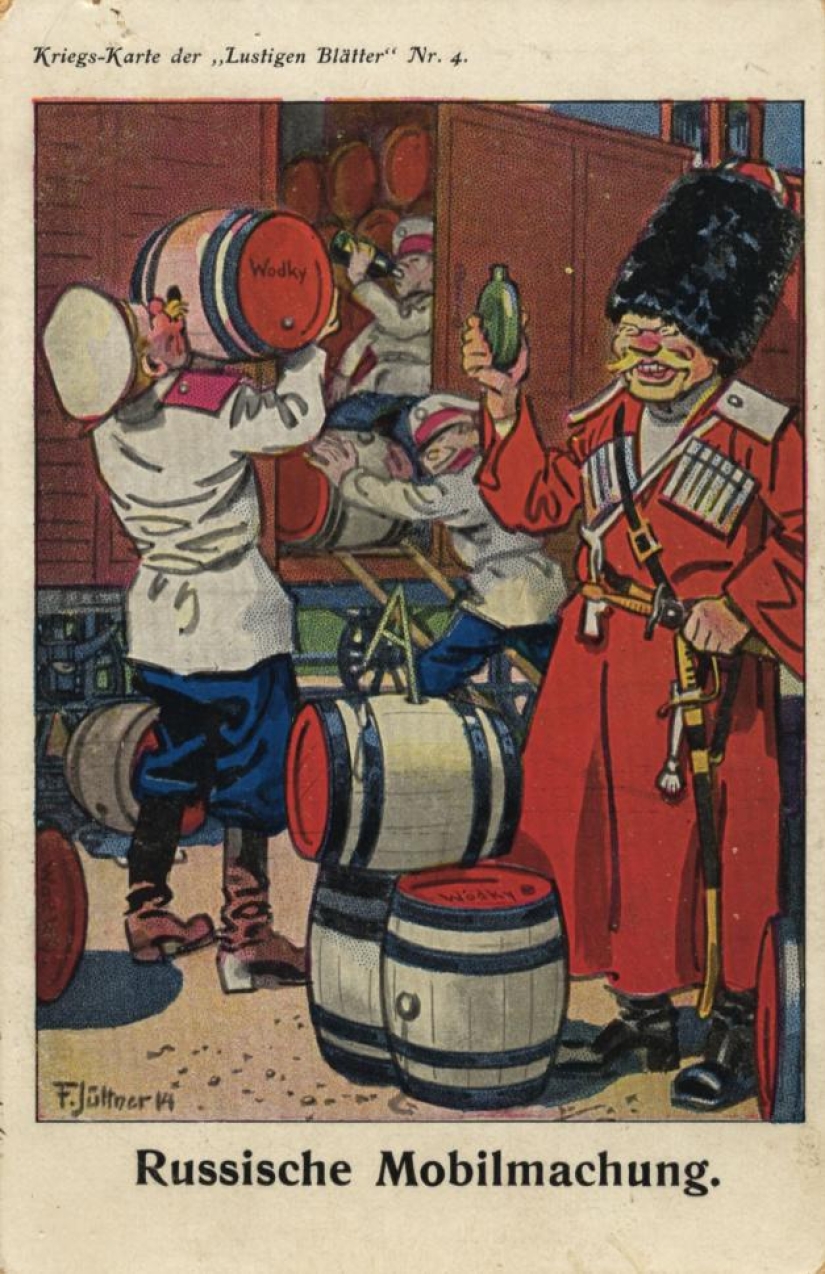
"Russian mobilization".
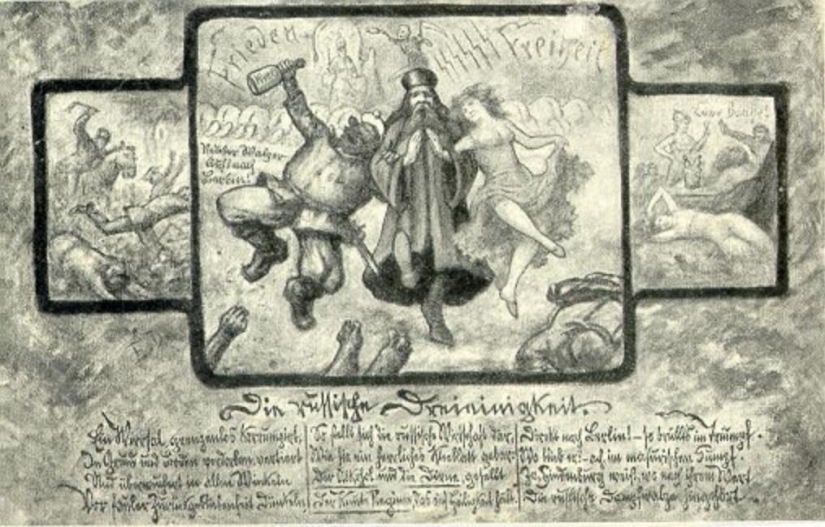
"Russian Trinity".
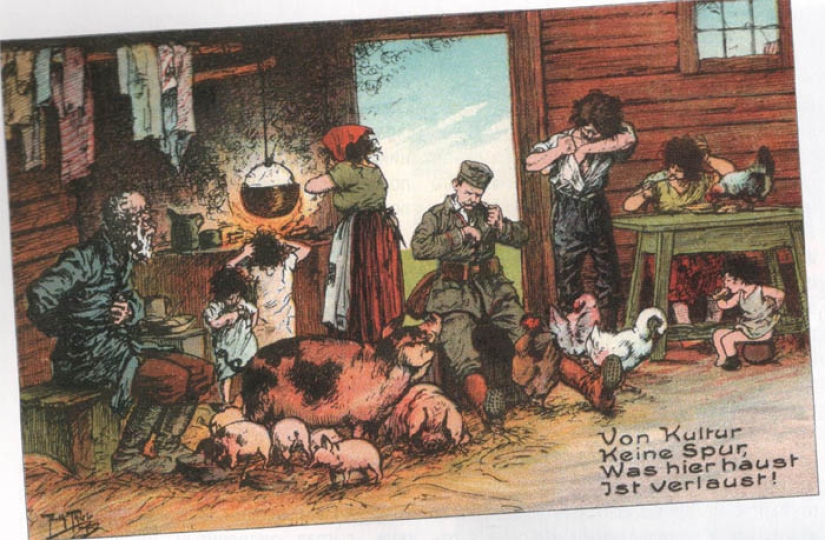
"There is no trace of culture. The only thing that exists is lice."
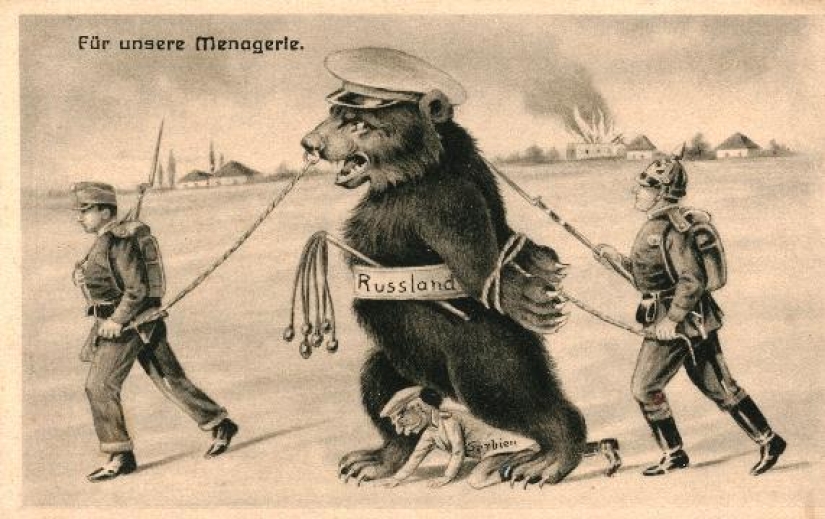
"For our menagerie."
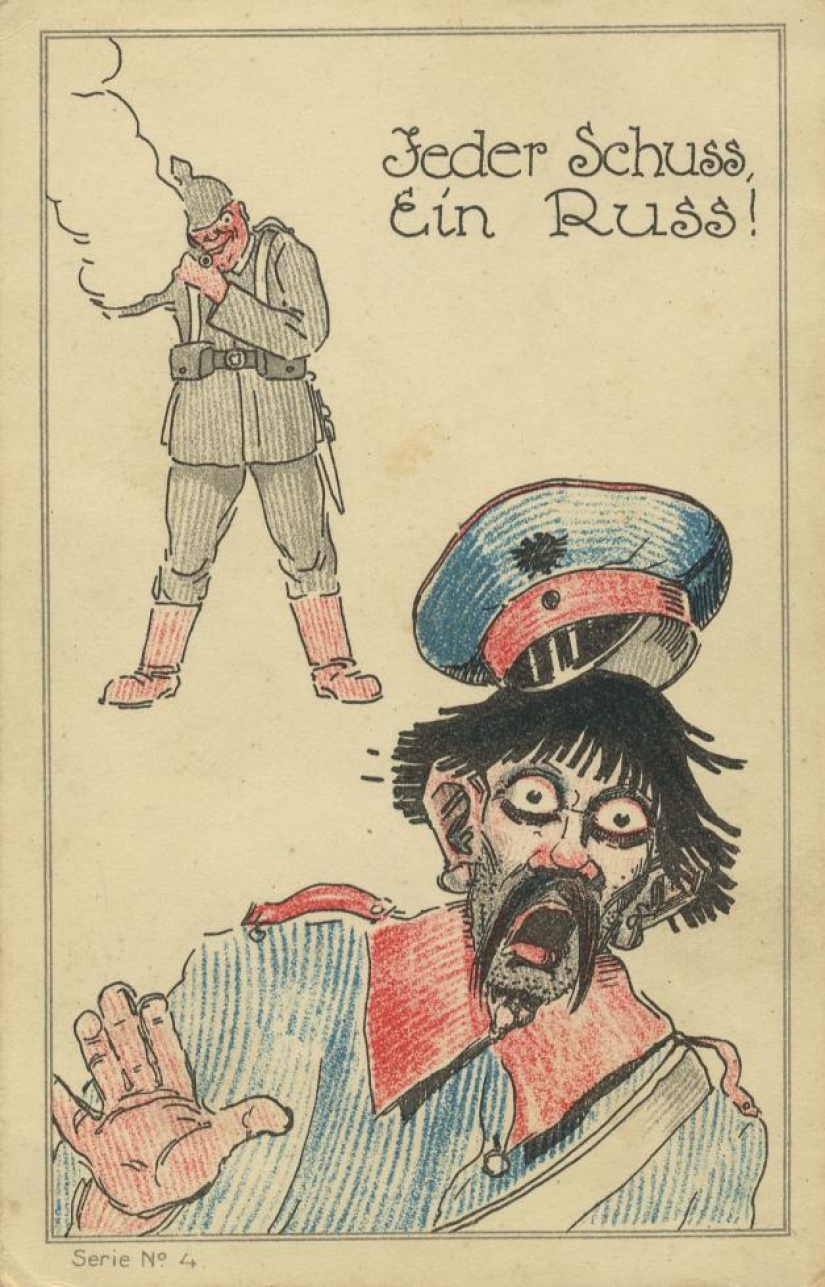
"Shot in the dirty bullseye."
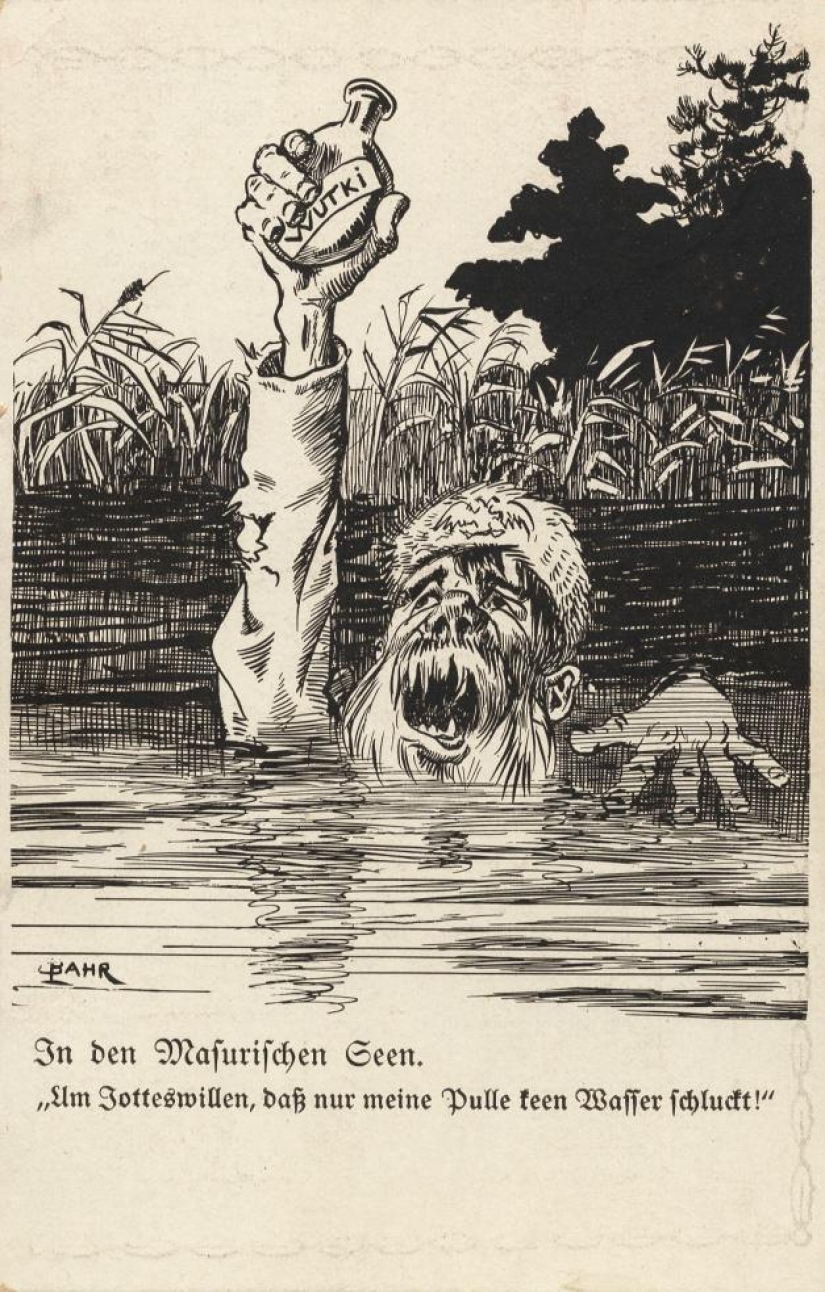
"Swimming in the Masurian lakes".
Keywords: Nicholas II | Postcards | World War I | Propaganda
Post News ArticleRecent articles

It's high time to admit that this whole hipster idea has gone too far. The concept has become so popular that even restaurants have ...

There is a perception that people only use 10% of their brain potential. But the heroes of our review, apparently, found a way to ...
Related articles

Contemporaries say that Nicholas II was a very versatile man, active and with a lot of Hobbies. Despite his busy schedule, he found ...

The stunning photochromic postcards released by the Detroit Publishing Company showcase 1900s New York in all its colorful splendor.

It is well known that the powers that be in our days, nothing. In this case, the sign of good tone is to hide the true revenue, so ...

New Year's is a time to surprise and delight loved ones not only with gifts but also with a unique presentation of the holiday ...